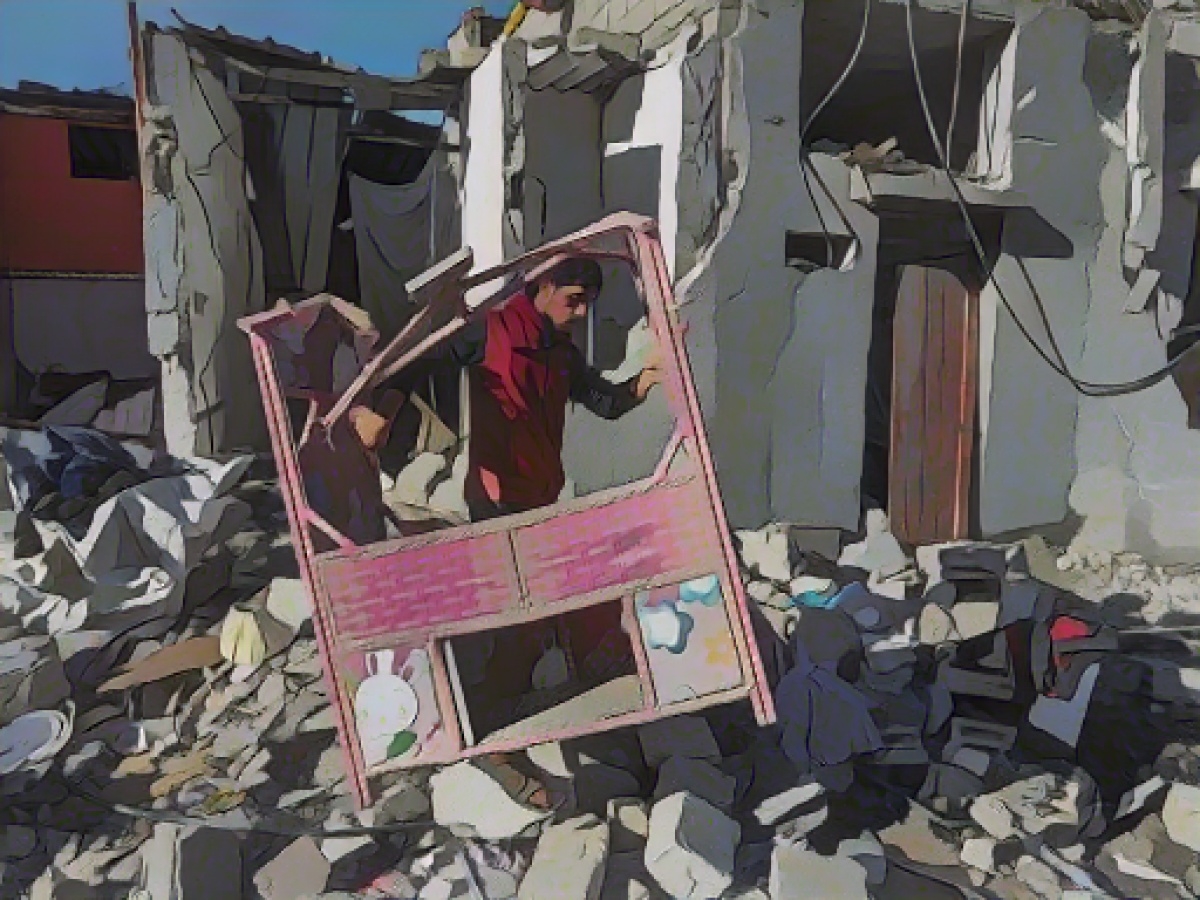Germans in Gaza Grapple for Escape: "Save Us from Hell"
German-Palestinian Mazen Eldanaf has been stuck at the Rafah border crossing in Gaza for days, awaiting the chance to flee the war-torn region. The 61-year-old has scrutinized the latest departure lists, only to find his name lacking once more.
"Hundreds of people from various nations are permitted to leave, but we remain here," laments Eldanaf, a resident of Bonn who has lived there with his wife for 43 years. His visit to Gaza, intended to be ten days long, has transformed into a heart-wrenching nightmare.
Eldanaf had come to Gaza to reunite with his family, explaining that his business often allows for such trips. The goal was to see his four brothers and sister. However, the peaceful family visit was short-lived as the Israeli bombings intensified.
His wife, Khitam, a social worker, has not slept for nearly four weeks due to the constant bombing. Her voice trembles as she pleads, "I want to escape this place. There's no life here. All you can smell and see is death." Her concern extends beyond their desperation, as her four adult children in Germany are left in suspense, unsure if they will ever see their parents alive again.
Thousands of Germans Struggle to Escape
As of now, hundreds of Palestinians with German citizenship remain trapped in the conflict zone. Egyptian figures report around 7,000 foreign nationals from 60 countries, all looking to leave. Only a handful of Germans have managed to slip through the cracks and flee to Egypt.
According to the German Foreign Office, 30 Germans successfully left the coastal area on Friday, a significant increase from the "low single-digit number" that had previously escaped.
Bombs Wreak Havoc
Eldanaf and his wife have attempted to escape several times, but the turmoil does not seem to subside. He yearns for the German government to intervene and rescue them from their hellish situation.
Legitimate Criticism of Government
However, his frustration does not end with the Israeli bombings. Eldanaf indicts the German government, specifically Foreign Minister Annalena Baerbock, for failing to support him and his family's escape requests.
"I used to vote for the Greens, a party that stood for peace," Eldanaf laments. "But their promises fall short when we need them the most. They offer no help, no support. It's disheartening."
German-Palestinian Jamal Abdel Latif shares Eldanaf's disillusionment. He has sent multiple emails to the German embassy in Ramallah, only to receive silence in return.
"Answering an email shouldn't be complicated in a situation like this," he complains, before adding, "They warn people not to go to the area, but they offer no alternatives to those already trapped within it."
A Dangerous Escape to the South
Latif and his family fled the Gaza Strip's northern city to the city of Dir Al-Bala in the south. The journey was fraught with danger, filled with bombings and mortal fears. Latif's wife's Palestinian passport had expired, and obtaining a new one was a challenge as they hadn't anticipated the conflict.
He managed to send a notarized marriage certificate to the embassy, hoping for a swift reply. However, silence ensued. Unable to escape without his wife, he and his family continue to feel trapped, with no clear future in sight.
A Glimpse of Reality
The situation in Gaza is unbearable. Families like the Eldanafs and the Latifs are caught in a web of conflicts and mourn the death of their homes, livelihoods, and loved ones. The bombings and devastation have claimed the lives of more than 9,000 people thus far, with countless others left homeless or injured.
The future is uncertain, the present unbearable, and the hope of a peaceful resolution seems elusive. Despite the plight of trapped German-Palestinians, their cries for help are often unanswered and their requests for intervention met with cold silence.








